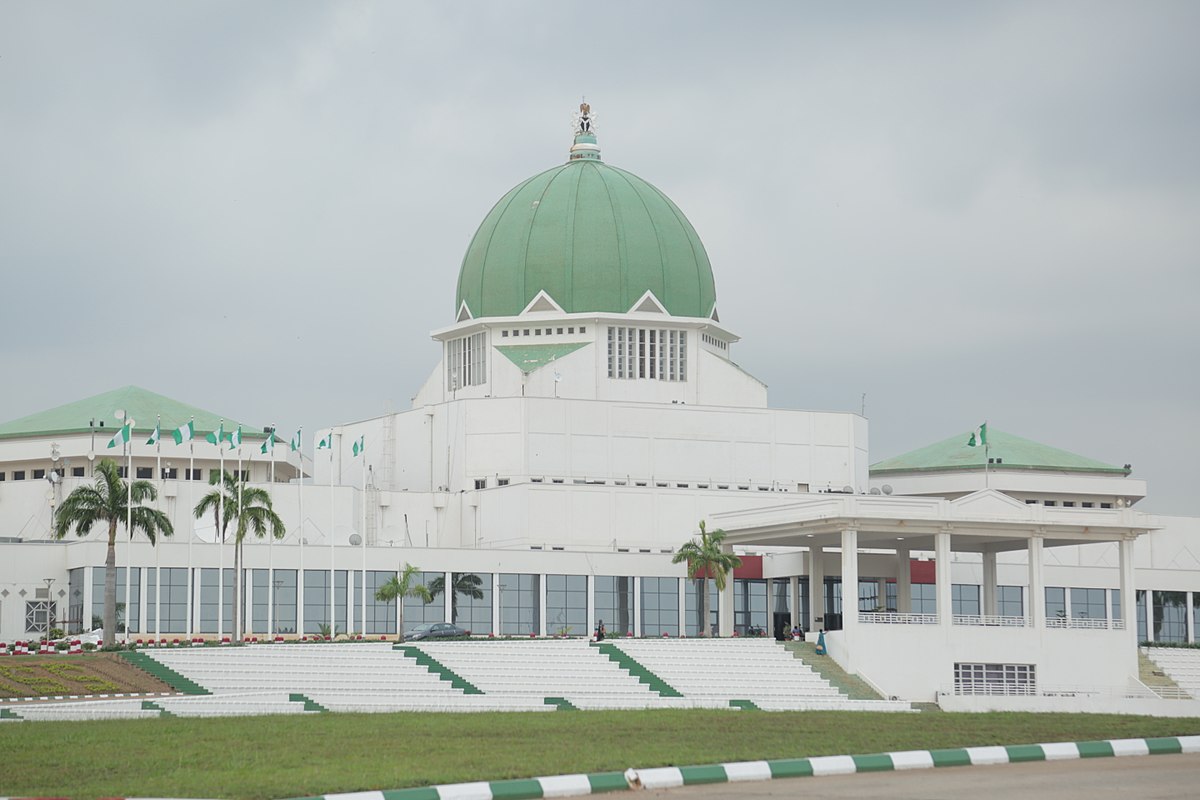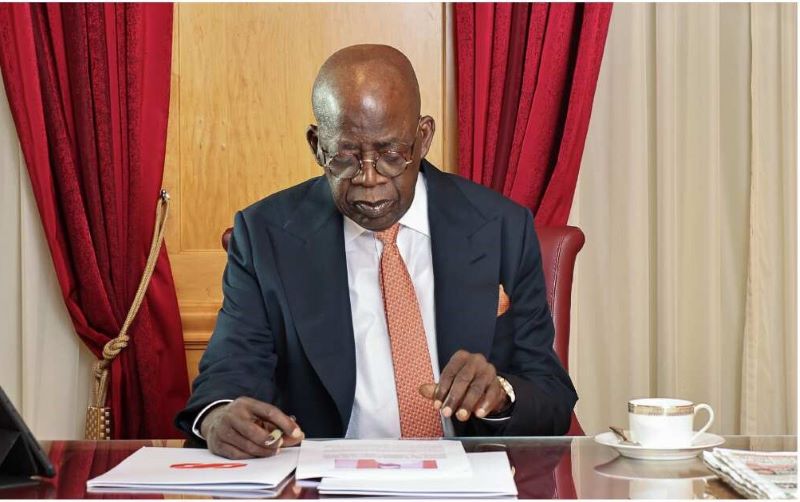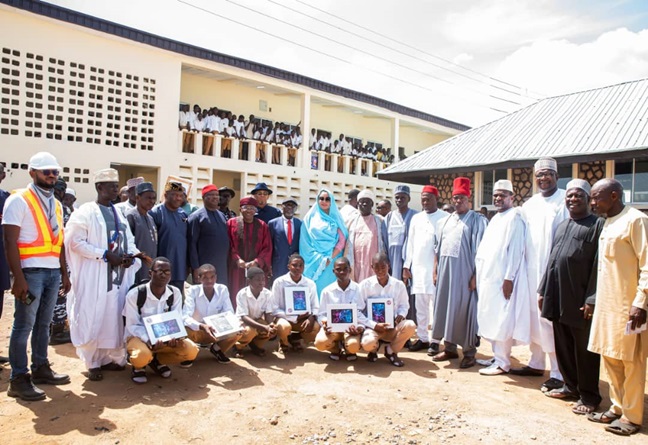Legislature
Senate okays bill to increase law schools from 7 to 13

***Kabba in Kogi to get one
The Senate on has passed a Bill that seeks to increase the number of Nigerian Law School campuses in the country from 7 to 13
Kabba in Kogi State home of the sponsor is to get one of the law schools
The Bill, entitled: “A Bill for an Act to amend the Legal Education (Consolidation, etc) Act by establishing the campuses for the Nigerian Law School, and for other related matters” was sponsored by Kogi West Senator Smart Adeyemi.
The passage of the Bill followed the adoption of the recommendation of the Senate Committee on Judiciary, Human Rights and Legal Matters that considered the Bill.
Chairman of the Committee, Senator Opeyemi Bamidele presented the report.
According to the Bill, campuses of the Nigerian Law School and their locations include: Bwari Law School Campus, FCT, Abuja;
Kabba Law School Campus (North Central); Jos Law School, Plateau State (North Central); Yola Law School Campus, Adamawa (North East), Maiduguri Law School campus, Borno State (North East); Lagos Law School Campus (Southwest) and Ilawe Law School campus, Ekiti State (Southwest);
Others are: Kano Law School Campus (Northwest); Argungun Law School Campus, Kebbi State (North West), Enugu Law School Campus, Enugu State (Southeast); Okija Law School Campus (South East); Yenegoa Law School Campus, Bayelsa State (Southsouth); Port-Harcourt Law School Campus, Rivers State (South South) and Orogun Law School campus, Delta State (South South).
According to the Bill, “There shall be established a minimum of two campuses in each of the six geopolitical zones, as specified in the schedule to the Bill.
“Subject to the provision of subsection 3, of this section, creation of additional campuses of the Nigerian Law School shall be approved by the National Assembly through legislation whenever the need arises.”
The Senate further resolved that the Bwari Law School should be for the Federal Capital City, while the proposed campuses in Kabba, Kogi State and Jos, Plateau state, would take care of the North Central zone.
The committee in its observation and findings, said: “That in view of the exponential increase in the number of law graduates from our universities and even foreign universities, coupled with the backlog that existed over the years, this legislative intervention measure is not only apt and timely but paramount;
“That without prejudice to the establishment of the Law School Campus in Port-Harcourt, the provision for additional campuses in the six-geopolitical zones of the federation in this Bill is appropriate as it has not tampered with the seven existing campuses p, established by administrative responsibilities of the Council of Legal Education;
“That the existing campuses are overstretched and the infrastructures are not enough to accommodate thousands of law students graduating from the universities;
“That apart from the statutory requirement for the creation of additional campuses, it should be strictly on the basis of need assessment and fulfillment of other indicators, such as, convenience, and accessibility by lecturers, staff and students, availability of office, lecture theater and hostel facilities, proximity to courts and law offices; and
“That the Federal Government should, as a matter of priority, provide adequate resources for the funding of the infrastructural needs of the Law School campuses, across the country.”
Legislature
NASS modifies NDLEA Act, Prescribes Life Imprisonment for Drug Traffickers

The National Assembly has modified the National Drug Law Enforcement Agency (NDLEA) Act to prescribe life imprisonment for individuals found guilty of storing, transporting, or concealing illicit drugs and substances.
The amendment was adopted on Thursday during plenary, presided over by Deputy Senate President Barau Jibrin, following broad support from the senators.
The amendment reflects a harmonised position of the Senate and the House of Representatives on Section 11 of the NDLEA Act.
The House had earlier passed an amendment prescribing life imprisonment for drug traffickers, while the Senate had proposed the death penalty.
To reconcile the differences, a conference committee of both chambers was convened. Senator Tahir Monguno, Chairman of the Senate Committee on Judiciary, Human Rights, and Legal Matters, presented the harmonised version to the Senate.
He urged lawmakers to adopt the House’s position of life imprisonment, arguing that enforcing the death penalty could lead to the execution of over 900 accused persons currently awaiting trial for drug-related offenses.
The Deputy Senate President who presided over the plenary had put the resolution to a voice vote, and the majority of senators supported the amendment.
The approved version stipulates life imprisonment for offenders.
The amended section now reads:
“Anybody who is unlawfully involved in the storage, custody, movement, carriage, or concealment of dangerous drugs or controlled substances and who, while so involved, is armed with any offensive weapon or is disguised in any way, shall be guilty of an offence under this Act and liable on conviction to be sentenced to life imprisonment.”
This amendment aims to strengthen the fight against drug trafficking while addressing concerns over human rights and the judicial implications of the death penalty.
The move is part of efforts to curb the growing menace of drug trafficking and its adverse effects on Nigerian society. According to Senator Monguno, the life imprisonment penalty strikes a balance between deterrence and humane judicial practice.
With the amendment, the NDLEA now has a robust legal framework to prosecute offenders and combat drug-related crimes effectively.
Legislature
President Tinubu urges Senate to approve ₦1.767trn External Loan

President Bola Ahmed Tinubu has formally requested the National Assembly’s approval for a $2.209 billion (₦1.767 trillion) external borrowing plan to finance part of the ₦9.17 trillion fiscal deficit in the 2024 budget. The loan, included in the 2024 Appropriation Act, is critical to the government’s broader strategy for economic recovery and growth.
In a letter to Senate President Godswill Akpabio, President Tinubu noted that the borrowing aligns with the provisions of Sections 21(1) and 27(1) of the Debt Management Office (DMO) Establishment Act, 2003. He also indicated that the Federal Executive Council (FEC) had approved the plan.
The President explained that the funds would be sourced through Eurobonds or similar external financial instruments. A detailed summary of the loan’s terms and conditions accompanied the letter to guide legislative scrutiny.
“This borrowing is necessary to address the budget deficit and fulfill our fiscal strategy for 2024. Swift approval will enable us to move forward with mobilizing these funds,” the President stated, emphasizing the urgency of the request.
Senate President Akpabio referred the matter to the Committee on Local and Foreign Deb
Legislature
Senator Natasha Transforms Kogi Central Schools with 5,000 Digital Learning Devices

By Isah Bala
Access to quality education is a cornerstone of societal progress, and Senator Natasha Akpoti-Uduaghan is embodying this vision by bringing transformative educational tools to Kogi Central. In a groundbreaking initiative, the senator recently provided 5,000 digital learning devices to public primary and secondary schools in her district, aiming to bridge the digital divide and set a new educational standard.
The devices, unveiled at Abdul Aziz Attah Memorial College (AAAMCO), are preloaded with the Nigerian curriculum from UBEC and internationally acclaimed educational resources, including Khan Academy and Discovery Kids. Through this initiative, students will experience interactive learning, enabling them to explore subjects in depth, enhance digital literacy, and engage with complex topics in a hands-on way.
This project is just the beginning of Senator Natasha’s ambitious plan to make “smart schools” the norm in Kogi Central. She envisions a future where every child in her district has equal access to digital learning, stating, “My dream is to equip all public primary and secondary schools in Kogi Central with digital learning devices before the end of my tenure in 2027.”
Beyond device distribution, the senator’s initiative includes UBEC-led teacher training to ensure educators are equipped to integrate these tools into their classrooms effectively.
With this dual approach of student and teacher empowerment, Senator Natasha is laying a foundation that will support digital literacy and skill development for years to come.
Senator Natasha’s commitment to educational advancement represents a significant step forward for Kogi Central, ensuring that young students have access to the tools they need to succeed in an increasingly digital world. This initiative marks her dedication to the constituency that entrusted her with this mandate.
-

 Crime1 year ago
Crime1 year agoPolice nabs Killer of Varsity Lecturer in Niger
-

 News10 months ago
News10 months agoFCT-IRS tells socialite Aisha Achimugu not to forget to file her annual returns
-

 Appointment1 year ago
Appointment1 year agoTinubu names El-Rufai, Tope Fasua, others in New appointments
-

 News From Kogi1 year ago
News From Kogi1 year agoINEC cancells election in 67 polling units in Ogori-Magongo in Kogi
-

 News From Kogi1 year ago
News From Kogi1 year agoEchocho Challenges Tribunal Judgment ordering rerun in 94 polling units
-

 News1 year ago
News1 year agoIPOB: Simon Ekpa gives reason for seperatists clamour for Biafra
-

 Metro8 months ago
Metro8 months ago‘Listing Simon Ekpa among wanted persons by Nigeria military is rascality, intimidation’
-

 News10 months ago
News10 months agoKingmakers of Igu/ Koton-Karfe dare Bello, urge him to reverse deposition of Ohimege-Igu
